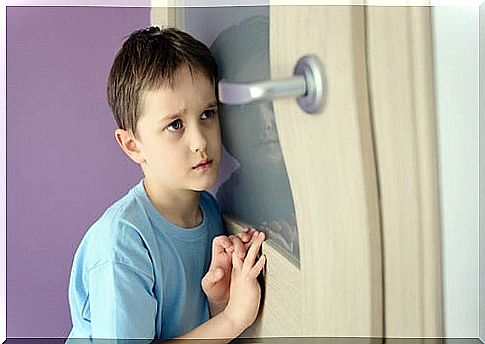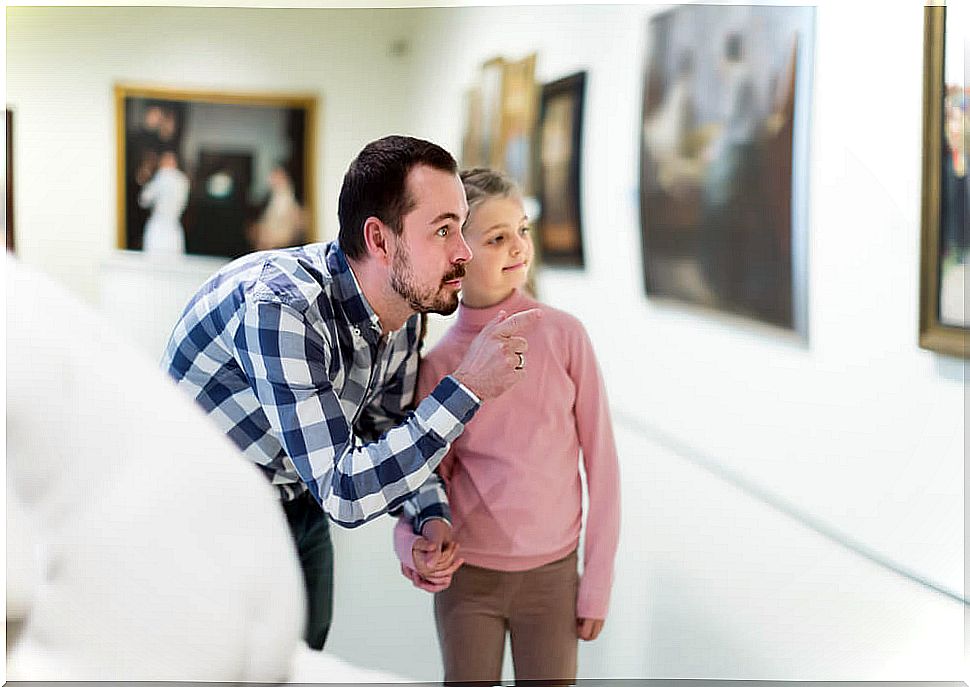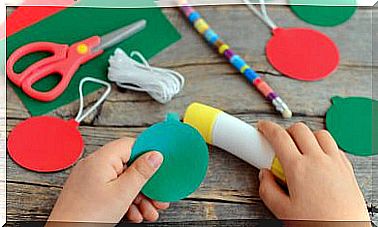Educate In “respect” Not In The “obedience” Of Fear

Parents often do not know how to distinguish between respect and obedience, which leads to a healthy relationship with their children. For this reason it is important to know what is the limit that separates these two concepts and how to separate them in practice.
It should be noted that obedience often does not result in happy parents and children. In fact, many times it creates a barrier between the two that progressively damages affection and its different expressions.
What is obedience?
Obedience is the action of following the orders of another person (considered superior) without questioning, justification, motives or reasons. Generally, this implies that the superior’s precepts are followed to please him.
And what is wrong with this? First, the lack of questioning and explanation creates a communication barrier. Without the necessary explanations, a child will not understand the reasons why he should do (or not do) a certain action.
Tomorrow this child may be an unconscious adult. You will disdain for explanations and this will negatively affect different areas of your life.

On the other hand, you may develop a passive attitude, which allows abuse of all kinds. It is also possible that you are too fickle a person, with the constant need to gain acceptance from others.
Obedience is obtained through fear, punishment and imposition, not through education. Therefore, obedience does not guarantee a healthy individual, much less happy.
It is necessary that they understand the reasons so that they can develop good behavior and that they can develop spontaneously. Otherwise, the child will never know what exactly is expected of him and will stumble along, full of uncertainty.
Incorrect manifestations of obedience
This is a very common type of behavior that teachers and professors see in classrooms. Children who abuse others in class, who do not respect them and who show behavior that is very different from their behavior at home.
When teachers talk to parents, they do not fully understand -or believe- that their children act in this way because at home “they are very obedient.”
The problem lies in the following: when we educate with fear and punishment, children obey, but they do not internalize the concept of respect.
They act out of obligation, not understanding. Hence, at school, feeling free from family pressure, they tend to channel that fear and anger into disruptive behaviors.
Sometimes we can even see the opposite case. Children with a severe upbringing, based on obedience, show closed, fearful and defensive behaviors in other settings.
There are many ways to educate a child and each family will undoubtedly have its principles, its values and its schemes on what they want to transmit to their children. Now, neither obedience nor submission is healthy.
Risks of obedience-based parenting:
- Children do not dare or know how to express their emotions because any spontaneous act is sanctioned.
- Children who are taught to be silent, to hide their tears because “crying is weak” or to stay still because they “bother”, are emotionally repressed.
- Obedience also seeks to “protect” the child from possible dangers. An obedient child is a person who will not cross the comfort zone of home and who will be attached to that family bubble.
The obedient child brought up in fear does not dare to explore, does not discover, does not feel safe to open up to others. Fear is the opposite of happiness. It is necessary to change schemes, educate in respect not in fear.
Educating in respect creates healthy bonds
It is not the same “shut up and be still, the only thing you do is bother” than to say ” can you keep quiet now, please? Mom is on the phone. “

It is true that we all want to have children who listen to us, but to achieve this it is necessary that they always understand why they should listen to us and what sense it makes to always act with respect for others.
Take note of these keys in which to reflect on the value of education based on respect:
- Offer responsibilities to your child. It is necessary for him to learn early on the importance of doing things for himself and taking care of his personal belongings. Little by little you will feel proud of yourself as you realize that you are capable of many things and that we trust them.
- Reason with your children about any rules you make at home. Explain why it must be met. Talk to your children and establish a respectful communication where you can answer all their questions.
- When he does something wrong, don’t yell or humiliate him (“you’re clumsy,” “you’re the baddest child in the world”). Instead of intensifying negativity, teach him to do things right. Understand their emotions and teach them to channel and understand those internal processes.










